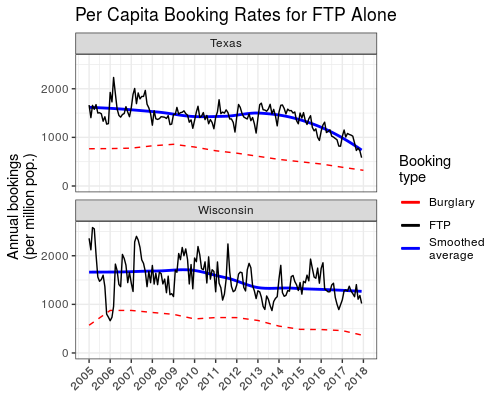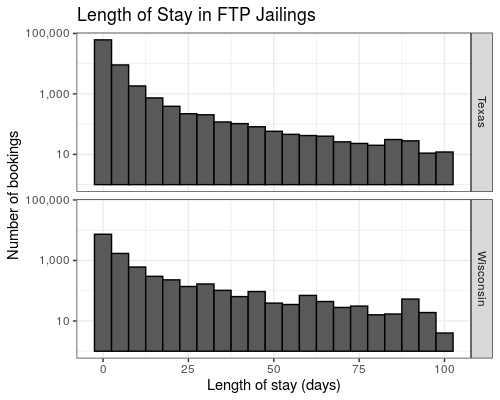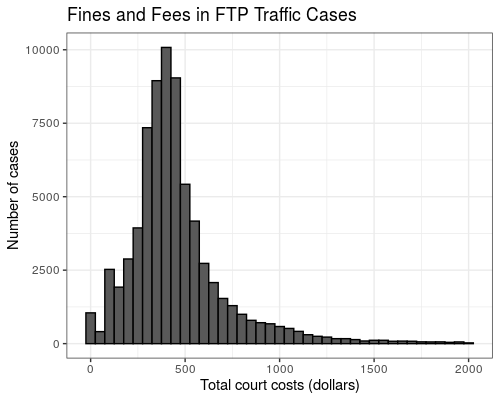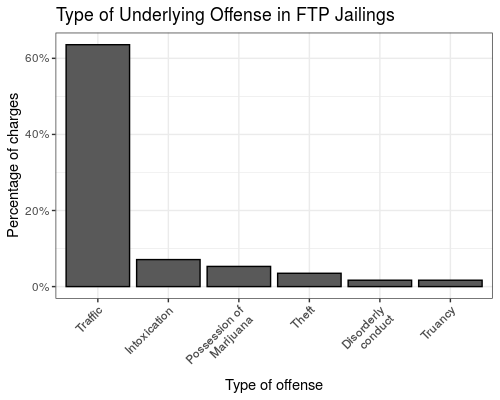Traffic courts try millions of low-level cases every
year. For many people, the result of a traffic case is, at
worst, adding points to their driving record and paying
fine. However, for a large but often unnoticed group of
people, the outcome of a traffic case is time in jail.
These individuals are jailed for failing to pay fines,
fees, court costs, and other monetary penalties —
what are often termed "legal financial
obligations" or "court debts." Imprisonment
for failing to pay court debts has not been tracked, at
least not in any systematic way. The Stanford Debtors'
Prisons Project, a collaboration between the Stanford
Computational Policy Lab and the Stanford Computational
Journalism Lab, has been collecting records of jail
bookings and failure to pay warrants across the country. We
have collected and standardized records of more than 4
million jail bookings and almost 3 million court cases.
The process has been marked by difficulties, from data
kept only in PDFs or on paper, to the denial or outright
disregard of hundreds of public records requests by local
agencies. Many jails and law enforcement agencies do not
record when an individual has been jailed for failure to
pay in any way, or use idiosyncratic or inconsistent
recording practices.
Data from 64 county jails in Texas and 27 in Wisconsin,
along with hundreds of thousands of failure to pay warrants
in Oklahoma allow us to rigorously analyze some aspects of
debt imprisonment. We find that the practice is widespread,
affecting at least tens of thousands of people per year,
with significant consequences for people caught up in
it.
You can explore our results on this site, along with a
tutorial and the raw data
data to help you to reproduce the
analyses yourself. See our
paper for more information.



